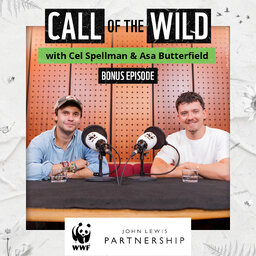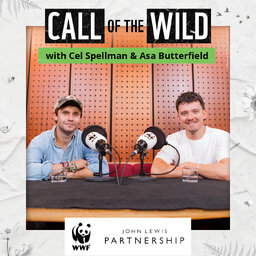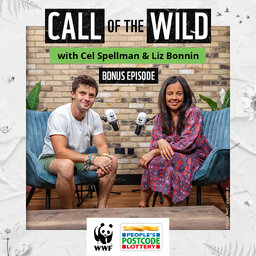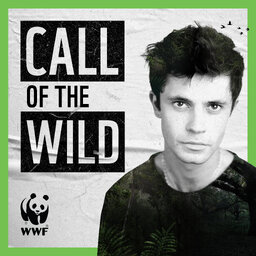Exploring our natural world – with Sir David Attenborough
“If we damage the natural world, we are damaging ourselves, and we have been doing that without care for decades.”
Sir David Attenborough is the ultimate advocate for planet Earth.
At the launch of his feature documentary for Netflix, A Life On Our Planet, actor and WWF Ambassador Cel Spellman spoke with him to explore what’s at stake, finding joy in nature, and why there is still hope for our natural world.
Join the conversation on social media using #CallOfTheWild, and subscribe now so you never miss an episode.
The Wild is calling. It's time to act.
In 1 playlist(s)
Call Of The Wild
We’re having an impact on nature like never before: polluting the skies and seas, burning up fossil …Social links
Follow podcast
Recent clips

Asa Butterfield's Call of the Wild
10:39

Asa Butterfield on road trips, safari close calls, and seeing a giraffe for the first time
32:13

Liz Bonnin's Call of the Wild
07:50
 Call Of The Wild
Call Of The Wild